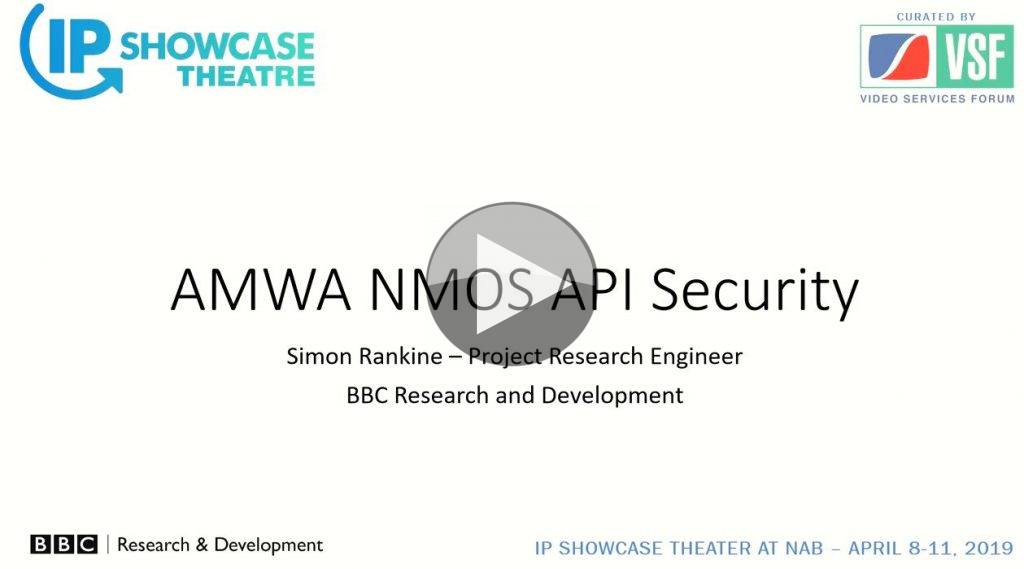Building security into your infrastructure is more and more important for broadcasters with many now taking very seriously a topic which, only 6 years ago, was only just being discussed. Attacks on broadcasters like TV5 Monde have brought into focus that it’s not just copmanies who have high value rights who are ripe for breach – attacking a broadcaster is a high impact way of getting your message accross.
We have seen how the internet, which was built on very open and trusting protocols, has struggled in recent times to keep abuse to a minimum and to implement security to keep data safe and to keep out unauthorised persons.
And so AMWA is looking at its recent specifcations to ensure there is a clear and interoperable way of implementing security. The benefit of IP should be that that as an industry we can benefit from the work of other industries before us and here, having based these specifications on HTTP interfaces, we can do exactly that. Just like sites on the internet can implemnt HTTPS, we, too use the same mechanism of security certificates and TLS (colloquially known as SSL) encryption to ensure that not only is our data encrypted but also that no one can impersonate anyone else on the network.
Simon Rankine from BBC R&D explains the work he has been part of in defining this secure interface which not only protects from mal-intentioned actors, but also offers some protection from accidental mistakes by staff.
Simon gives a good intorduction to not only how this is a benefit but also how the underlying mechanisms work which are just as applicable to the NMOS APIs as they are to general websites.
Speaker
 |
Simon Rankine Project Research Engineer, BBC R&D |


